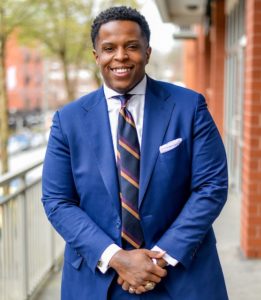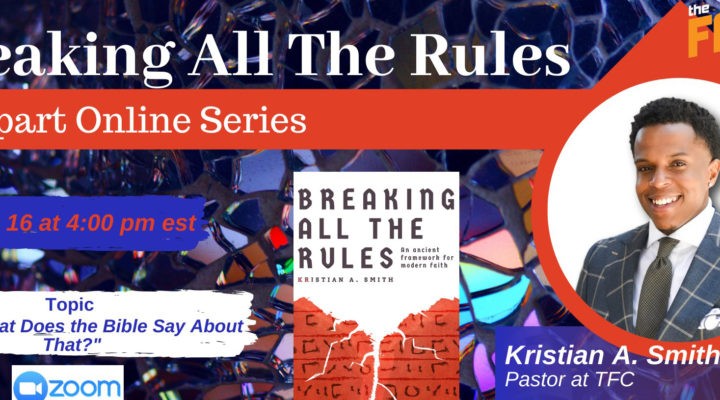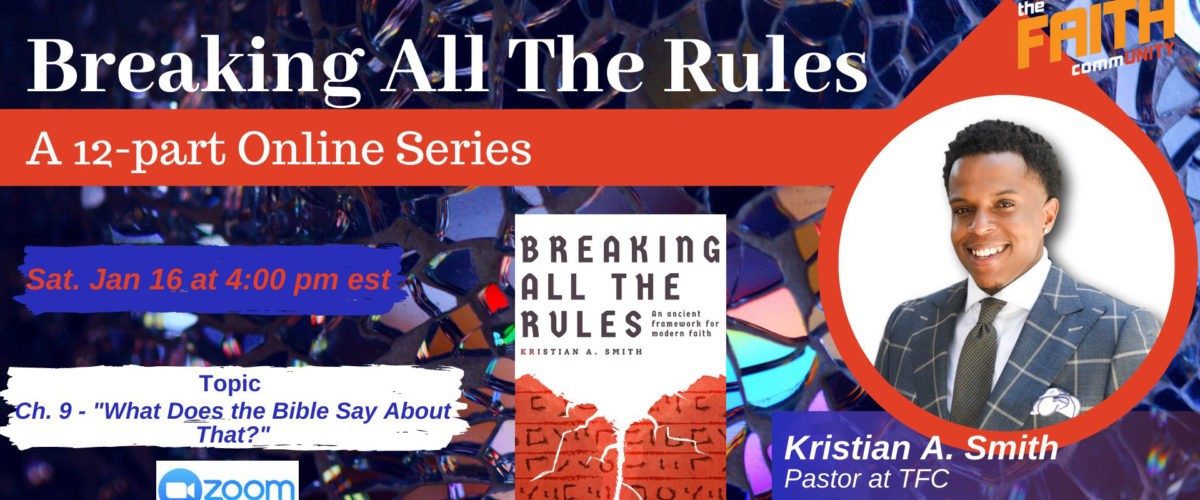The suddenness of the coronavirus outbreak last year caught a lot of churches unprepared for a sudden transition to virtual worship and other gatherings.
The Faith Community, a Cooperative Baptist Fellowship church plant in Atlanta, wasn’t one of them. The congregation was launched with an online fellowship baked into its very DNA, said its lead pastor, Kristian Smith.
Seeing participants of virtual programming exceed previous in-person attendance — a surreal experience for many church leaders during the pandemic — was par for the course at The Faith Community before COVID-19 was a thing.

Kristian Smith
Smith’s experiences with technology and outreach in the virtual age have inspired the launch of “Virtually Unstoppable,” a clinic for church and other faith leaders interested in launching or enhancing their own online presence and ministries.
The sessions focus on building teams and technology for virtual ministry, caring for online communities, creating attractive and meaningful content and monetizing online ministries.
“This is so people understand that virtual ministry is not just about giving something away without giving something back,” he said.
If the pandemic has demonstrated anything, it’s that the online gathering place is here to stay for churches. Or should be, Smith believes.
“I’m not suggesting we abandon the physical space. I very much want to do ministry in the physical space. But I can’t abandon the virtual space, either. What we are talking about in ‘Virtually Unstoppable,’ and in my ongoing coaching with leaders, is how to do hybrid ministry, how to meet the needs of people physically and virtually at the same time and do them well.”
Smith spoke with Baptist News Global about the seminar and about the forces he sees driving the demand for virtual worship, spiritual formation and fellowship.
When were you called into ministry?
It was during college. I’m a fifth-generation preacher. My father, grandfather, great-grandfather and great-great uncle, I believe, were all Baptist pastors. It was 2007 when I acknowledged my call.
Do you see COVID-19 as a before/after moment in church history, much like the great schism or the Reformation?
I think the church was in the midst of a reformation pre-COVID and that COVID cemented it.
An example very close to me is the Black church tradition that I grew up in. It has been the center of the Civil Rights Movement in this country since it started. Everything revolved around the Black church. Now it’s revolving around movements like Black Lives Matter, which is led by people who have been ostracized by the Black church. So, the Black church has lost significant ground with these people. That’s one way I see the church shifting.
How does the rise of the virtual church play into it?
When we look back on this period of time from the perspective of our great-great-grandchildren, we will very likely see that around the turn of the 21st century the church went through another reformation. They’ll see this COVID period as a time when you could actually have meaningful community in the digital church.
Before that, the church tried to convince us we have to drive to church and be there physically because that’s where God was going to meet us. They back it up with biblical passages like “forsake not the assembling of yourselves.”
“Now the playing field has been leveled and many more people are worshiping virtually.”
You can see the difference before the pandemic, when many pastors would not offer virtual ministry or, if they did, they treated people on the stream like virtual onlookers. Now the playing field has been leveled and many more people are worshiping virtually.
Once COVID is over, a lot of people are going to remember the convenience of the virtual space. I think there will be this initial drive back to the in-person church, but once they get back to that every-single-Sunday pattern, they are going to remember how exhausting that can be. I think we’ll see churches and people moving into a form of hybrid church.
Why were you so intentional about offering virtual space at your church before the pandemic? Did you have an ‘aha’ moment about online ministry?
I don’t know if it was an ‘aha’ moment. It was just that in the planning of ministry I thought we have people from all over the Atlanta metro area who are participating in this ministry. We had people driving 45 minutes or an hour just to get to church. On a weeknight, that can be a very late day for them. It was clear to me we had to offer them a way to be here when they can’t be here in person. So, with regard to virtual space, it was decided this is just what we are going to do. This was for worship and Bible studies, everything. From the beginning, whatever we did, we had people participating virtually.
How did the pandemic impact that ministry?
The pandemic has actually accelerated our ministry. I don’t care where you are on the planet, if you can speak English, you can be a part of The Faith Community. And now when I look at that screen, the majority of people I see there don’t live in Atlanta.
Why do you believe virtual participation is so important to churches going forward?
“We used to get movies from Blockbuster, and we used to get clothes from Sears. Now, we get all of that and everything else from Amazon.”
The web affects everything. Every single industry has been impacted by the advancement of tech and the internet. We used to get movies from Blockbuster, and we used to get clothes from Sears. Now, we get all of that and everything else from Amazon. The church is not immune to this. The pandemic has shown how much our industry of spirituality is going to be impacted by the internet going forward.
What consequences do you foresee for churches that do not embrace the online context going forward?
Time will tell. In this generation, if you want to find out something about an organization or institution, we go online. So, if you don’t have an established footprint on the internet, you are really barring yourself from people who want to connect with your ministry. Some want to see about going physically, others will want to see if they can go virtually. If we use the pandemic as an example, time has already told on these churches. Churches have already shut down because they weren’t prepared.


